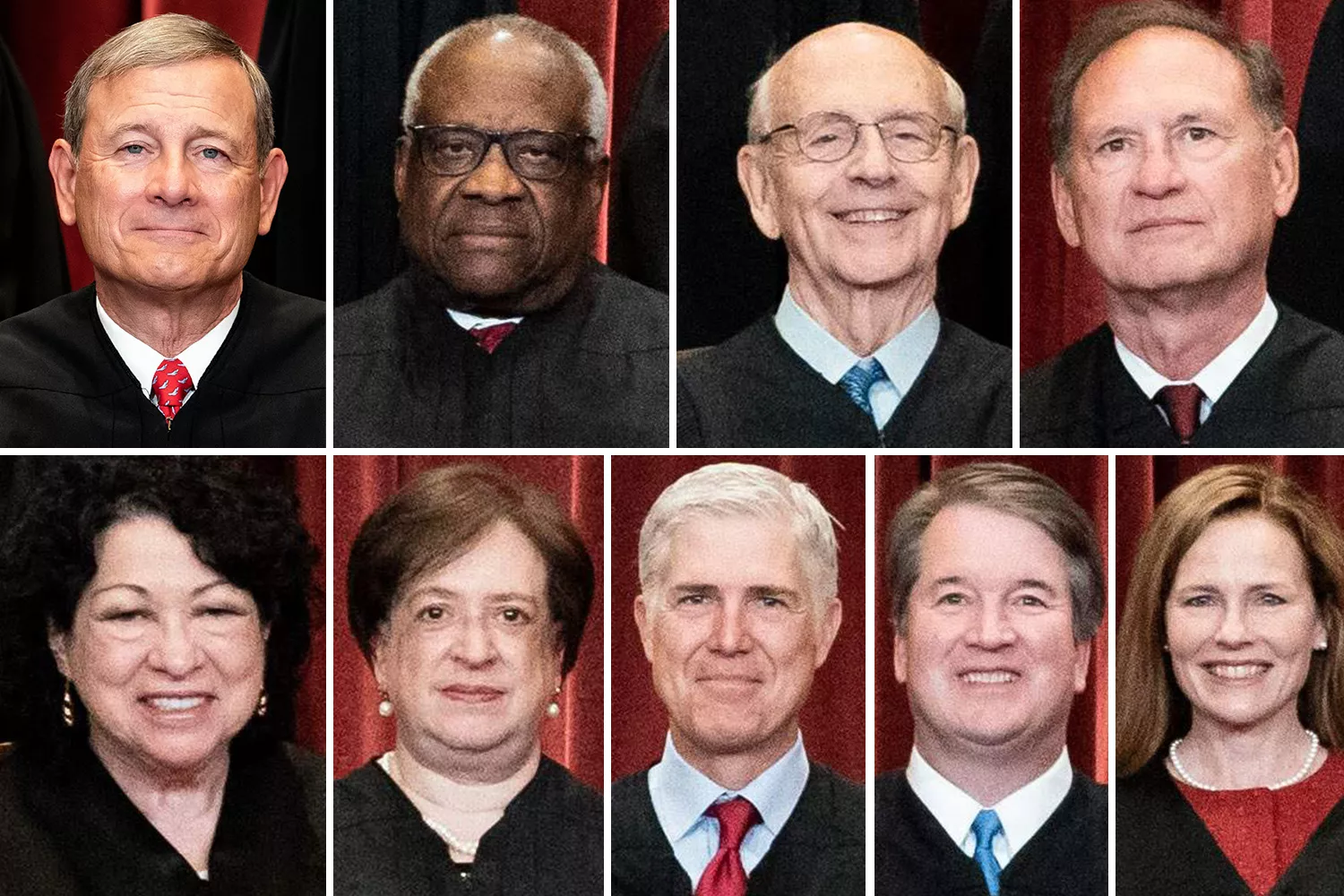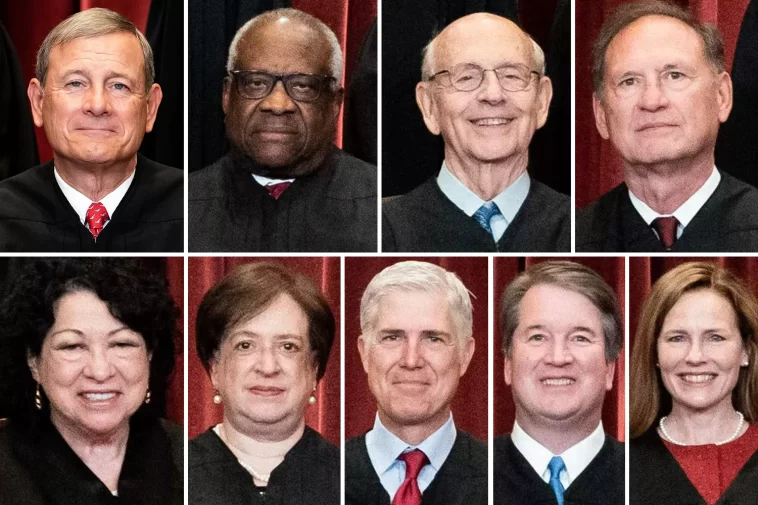
The Checks and Balances Letter: July 2024
The Checks and Balances Letter delivers monthly news and information from Ballotpedia’s Administrative State Project, including pivotal actions at the federal and state levels related to the separation of powers, due process, and the rule of law since the last edition.
Supreme Court Limits Authority of Administrative Agencies
The U.S. Supreme Court issued its final decisions for the October 2023 term on July 1, 2024. The Supreme Court issued decisions in nine cases related to administrative law during the term. Some of the term’s administrative state-related SCOTUS rulings limited the authority and influence of administrative agencies.
Notably, SCOTUS ruled against judicial deference to federal agency interpretations of ambiguous statutes. SCOTUS also ruled in favor of limiting the scope of in-house agency adjudication and expanding the timeframe to challenge agency actions.
Related Topics:
- Separation of Powers
- Due Process
- Administrative Law
Biden Administration’s Title IX Rule Temporarily Blocked in 15 States
Federal judges have temporarily blocked enforcement of the Biden administration’s new Title IX rule in 15 states as of July 16, holding that the rule exceeds the Department of Education’s (DOE) authority.
The rule, published on April 29 and scheduled to take effect on August 1, expanded Title IX regulations prohibiting sex-based discrimination to additionally prohibit discrimination based on gender identity and sexual orientation. It requires schools to use students’ preferred pronouns and allow students to use bathrooms aligned with their gender identity instead of their biological sex.
The rule is temporarily blocked in Alaska, Idaho, Indiana, Kansas, Kentucky, Louisiana, Mississippi, Montana, Ohio, Tennessee, Texas, Utah, Virginia, West Virginia, and Wyoming. The rule is also blocked in schools attended by children of members of Moms for Liberty or the Young America’s Foundation.
Related Topics:
- Administrative Law
- Education Policy
- Discrimination
Court Blocks EEOC Rule Including Abortions Among Protected Procedures
The U.S. District Court for the Western District of Louisiana on June 17, 2024, issued a preliminary injunction to temporarily block enforcement of an Equal Employment Opportunity Commission (EEOC) rule in Louisiana and Mississippi.
The rule, effective June 18, included abortions among pregnancy-related procedures protected under the Pregnant Workers Fairness Act. Louisiana, Mississippi, and a group of Catholic organizations filed a lawsuit challenging the EEOC rule in May, arguing against the agency’s interpretation of the Pregnant Workers Fairness Act and its conflict with laws in some states banning abortions.
Judge David C. Joseph ruled that the agency exceeded its statutory authority when issuing the rule and “both unlawfully expropriated the authority of Congress and encroached upon the sovereignty of [Louisiana and Mississippi].”
Related Topics:
- Administrative Law
- Employment Law
- Abortion
Arizona Ballot Measure Applies REINS-Style Legislative Review to State Agency Rules
The Arizona State Legislature on June 12, 2024, put a ballot measure on the Nov. 5 ballot that would amend state law to require legislative ratification of certain state agency rules.
If voters approve the measure, proposed rules estimated to increase regulatory costs by more than $500,000 over five years will need legislative ratification to take effect. The Arizona Office of Economic Opportunity would be responsible for confirming the estimated regulatory cost of rules that might trigger legislative oversight under the measure.
The ballot measure contains provisions modeled after the Regulations from the Executive in Need of Scrutiny (REINS) Act—a federal legislative proposal designed to increase legislative oversight of administrative agency rulemaking.
Related Topics:
- Regulatory Policy
- Administrative Law
- Arizona
Wisconsin Supreme Court Rules Legislative Vetoes Unconstitutional
The Wisconsin Supreme Court ruled 6-1 on July 5, 2024, that the state’s Joint Committee on Finance exceeded its authority in using legislative vetoes to block land conservation purchases.
Legislative vetoes, in the context of administrative law, refer to resolutions by a legislative body that invalidate actions by the executive branch. Legislative vetoes can be issued by one or both chambers of the legislature or a congressional committee to nullify an executive action and do not require joint approval or presidential approval.
Some state governments allow for legislative vetoes in certain cases, but the extent of the authority varies. According to The State Democracy Research Initiative at the University of Wisconsin Law School, Wisconsin has strong-form legislative vetoes and temporary suspension power, which means the state legislature can veto a rule that the executive branch has approved.
Gov. Tony Evers (D) filed a lawsuit in October 2023, alleging that the Republican-led committee’s legislative vetoes blocking the state Department of Natural Resources’ land conservation purchases violated the state constitution and the separation of powers.
Evers argued, “[T]hese vetoes empower legislative committees to interfere with executive branch authority and exercise executive power themselves.” The court, which has a 4-3 liberal majority, ruled that the power authorized to the legislature violated the separation of powers under the state’s constitution.
Related Topics:
- Administrative Law
- Separation of Powers
- Wisconsin
Florida Imposes Work Requirements on Food Assistance
The bill passed the Florida House of Representatives on February 22, 2024, with a vote of 114-1, and passed the Florida Senate unanimously on March 6, 2024.
The law went into effect on July 1.
Related Topics:
- Food Assistance
- Social Programs
- Florida
Judicial Interpretation vs. Administrative Expertise
In a recent post for the Yale Journal on Regulation’s Notice and Comment blog, administrative law professor Joshua Sarnoff wrote about the Supreme Court decision to overturn Chevron deference in Loper Bright Enterprises v. Raimondo and Relentless, Inc. v. Department of Commerce.
Sarnoff argued that the Constitution should be amended to create a framework for legally addressing and interpreting legislative ambiguities:
We will have to see how ‘workable’ will turn out to be the politicization of law through imposition of judicial preferences when interpreting statutes, by comparison to that of agency expertise and democratic accountability. But the power grab for the judiciary that Loper Bright reflects should not get a pass by going unremarked or unnoticed. And if this is where originalism leads (although it need not), it is time for us to change the Constitution (as any legislative effort to restrict such judicial discretion would likely be held by the current Supreme Court conservative majority to violate non-textual constitutional separation of powers limits or the non-delegation doctrine) and impose a new method of legal interpretation on our judiciary both for how to address inevitable legislative ambiguity and to assure that administrative expertise and democracy prevail over judicial policy-specifying supremacy.
Related Topics:
- Administrative Law
- Legal Interpretation
- Supreme Court
Regulatory Tally
Every month, Ballotpedia compiles information about regulatory reviews conducted by OIRA. To view this project, visit: Completed OIRA review of federal administrative agency rules.
Related Topics:
- Regulatory Policy
- Administrative Law
Originally Post From https://news.ballotpedia.org/2024/07/18/scotus-decisions-during-term-overturn-chevron-limit-sec-adjudication-proceedings-scope-and-more/
Read more about this topic at
Administrative Law
Administrative law


